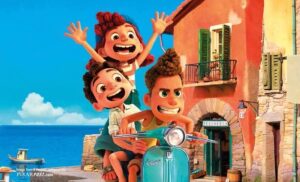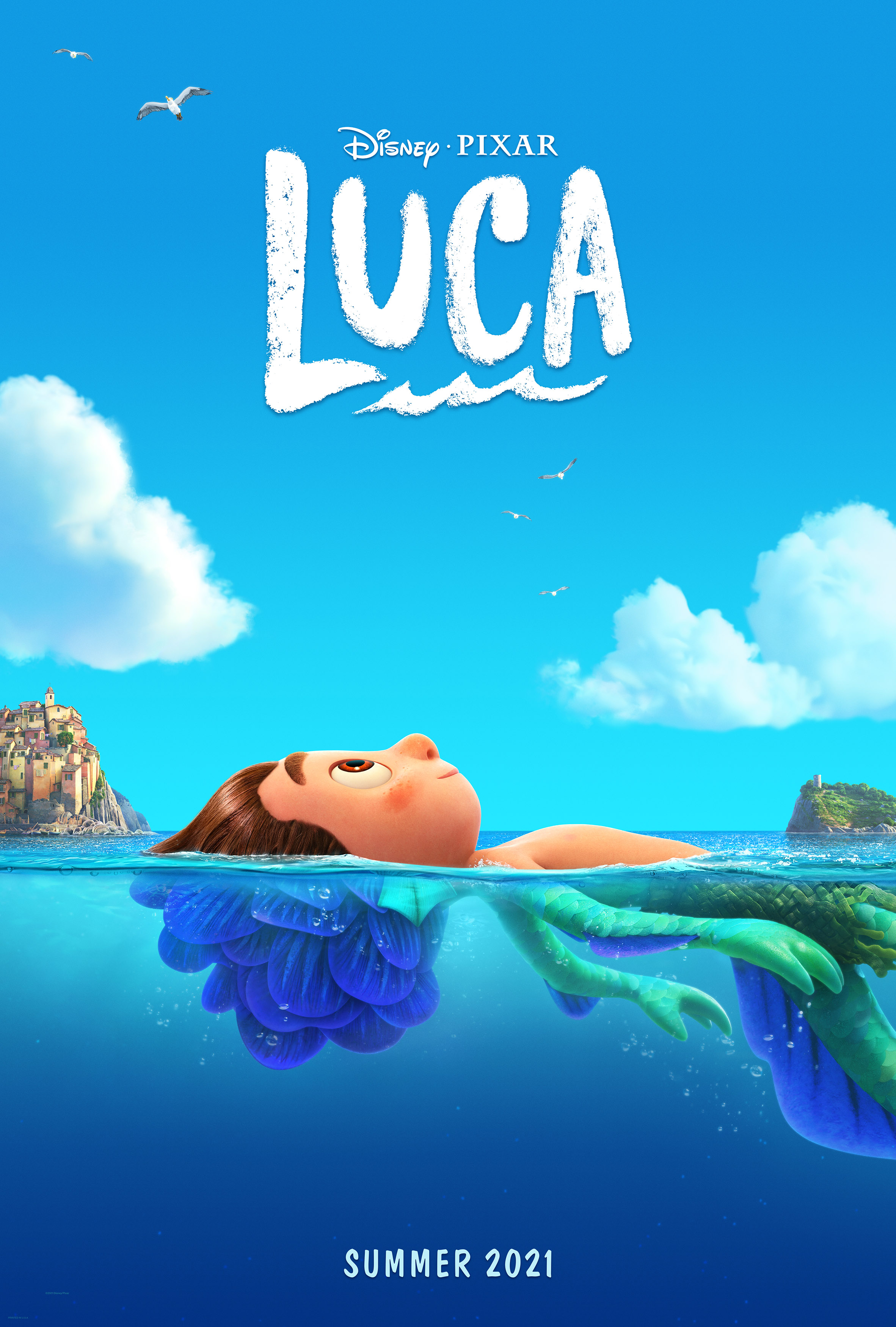Luca
Posted on June 16, 2021 at 1:55 pm
A-| Lowest Recommended Age: | Kindergarten - 3rd Grade |
| MPAA Rating: | Rated PG for rude humor, language, some thematic elements and brief violence |
| Profanity: | Mild language |
| Alcohol/ Drugs: | None |
| Violence/ Scariness: | Some peril and violence |
| Diversity Issues: | Disability issues, diversity a theme of the film |
| Date Released to Theaters: | June 18, 2021 |

Luca, voiced by Jacob Tremblay of “Room” and “Wonder,” lives under the sea off the coast of a fishing village called Portorosso. This is not the underwater place of Nemo or Ariel, but its own very distinctive and fully-imagined world. Luca is not a merman or a fish, exactly. He is a young sea monster, the son of loving parents Daniela (Maya Rudolph) and Lorenzo (Jim Gaffigan). He is responsible and well-behaved, herding a school of fish. But like Ariel, he is curious about the world outside the water and wants to learn more about what his family calls “land monster town.” His mother cautions him that it is dangerous. But he meets Alberto (Jack Dylan Grazer of “Shazam”), who shows him that sea monsters turn human when they are out of the water and introduces him to some of the wonders of the human world: sunlight, gravity, music, gelato, and…Vespas. Alberto’s dream is to have a Vespa and explore the world.
The — I’m just going to call them boys — try to build a Vespa on their own. But when they meet a spirited human girl named Giulia (Emma Berman) who tells them about a three-part race with a Vespa as the prize, they join forces. This being Italy, the three parts are: swimming, biking, and eating pasta.
But the five-time previous champion, a bully named Ercole (Saverio Raimondo) will do whatever it takes to win again. A single drop of water turns the boys back into their sea monster form, so when the sky starts leaking, I mean when it rains….well, it’s a challenge. Luca’s parents have taken human form to find him, tossing water on every boy they see.
The voice talent is exceptional, with Tremblay, Grazer, and Berman creating distinctive, endearing characters. A brief betrayal is shocking and dismaying because we are invested in their friendship. The film manages to weave in a number of themes with subtlety and insight as the character navigate their differences, as parents learn to love and let go and friends discover that you can stay friends even if you take different directions. Now excuse me while I put on some Puccini and cook pasta for dinner.
NOTE: Watch the credits for some sketches that continue the story and an extra scene with a character voiced by Sasha Baron Cohen.
Parents should know that this film includes peril and some violence. A disabled character is presented as strong, confident, and capable. A character has divorced parents and divides her time between their homes and another child is abandoned by his parents. Differences and acceptance are a theme of he movie. And while underwater Luca is a protective guardian of fish, somehow on land he has no problem helping Giulia’s father catch a boatful so he can sell them.
Family discussion: When should you say, “Silencio, Bruno!” and when should you listen to “Bruno?” Who in your life is an underdog? What do you do when friends want different things? Why did Alberto tell Luca to leave?
If you like this, try: “Finding Nemo” and “Finding Dory”

